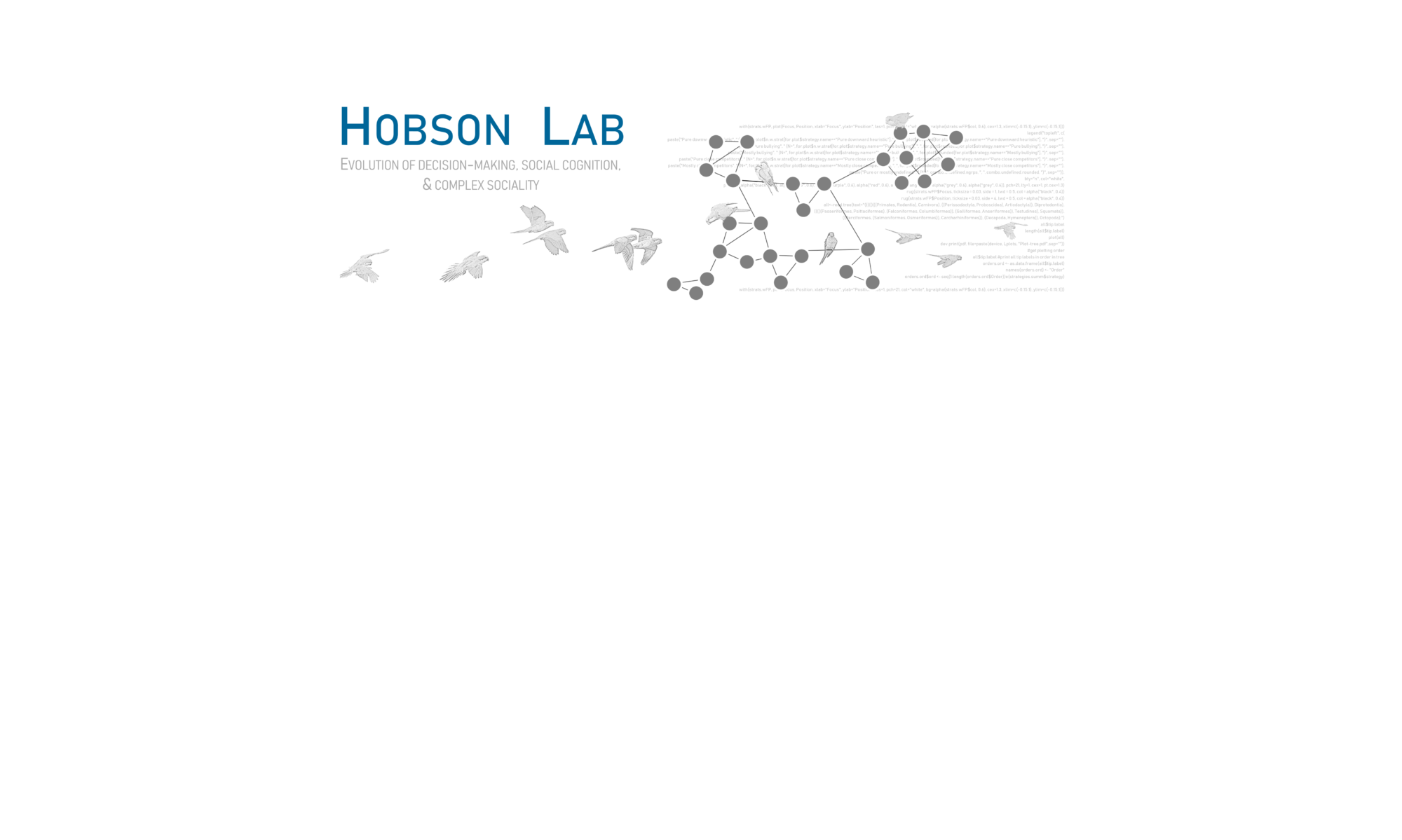I was really excited to be a guest on the Santa Fe Institute’s Complexity Podcast.
Listen to the episode here: https://complexity.simplecast.com/episodes/78
Elizabeth Hobson on Animal Dominance Hierarchies
FEBRUARY 24TH, 2022 | 01:13:37 | E78
EPISODE NOTES
Irrespective of your values, if you’re listening to this, you live in a pecking order. Dominance hierarchies, as they’re called by animal behaviorists, define the lives of social creatures. The society itself is a kind of individual that gathers information and adapts to its surroundings by encoding stable environmental features in the power relationships between its members. But what works for the society at large often results in violence and inequity for its members; as the founder of this field of research put it, “A grave seriousness lies over the chicken yard.” Over the last hundred years, the science of dominance hierarchies has bloomed faster than a saloon brawl — branching out for deeper understanding of the lives of everything from fish to insects, apes to parakeets. Today, amidst clashing national and corporate titans, systemic economic inequality, and legitimacy crises in the institutions that once served to maintain (admittedly unfair) order, the time is ripe to turn to and learn from what science has discovered about the fundamental mechanisms that underly both human nature and the rest of it: who loses and who wins, and why, and at what cost?
Welcome to COMPLEXITY, the official podcast of the Santa Fe Institute. I’m your host, Michael Garfield, and every other week we’ll bring you with us for far-ranging conversations with our worldwide network of rigorous researchers developing new frameworks to explain the deepest mysteries of the universe.
This week on Complexity, we speak with former ASU-SFI Fellow Elizabeth Hobson (Website | Twitter), now an Assistant Professor at the University of Cincinnati, about the last century of pecking order research. Dobson just co-edited an issue of Philosophical Transactions of The Royal Society B devoted to this topic, and we unpack her and others’ contributions to this volume — including retrospectives, literature reviews, quantitative analysis, and a look at the current state and frontiers of the science of what we can colloquially call “punching up and down”…





